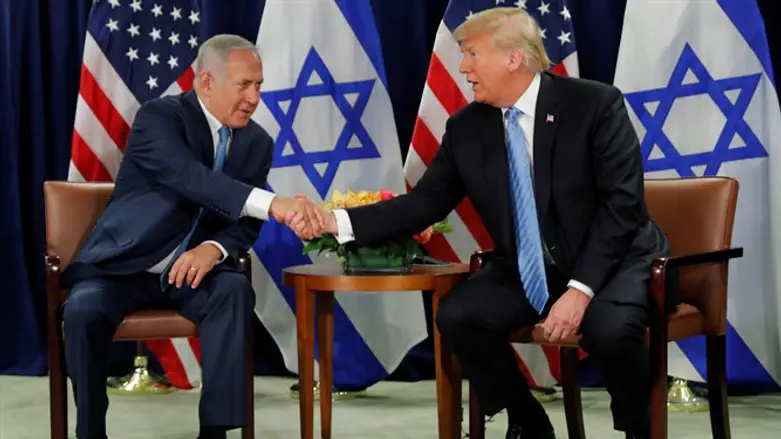
US President Donald Trump’s proposal for a “Deal of the Century” to resolve the Arab-Israeli conflict promises practical improvements in the lives of Palestinian Arabs but is likely to stop short of ensuring a separate, fully sovereign Palestinian state, people familiar with the main elements of the effort told The Washington Post on Sunday.
The White House is expected to roll out its long-anticipated peace package later this spring or by early summer, after more than two years of effort by Trump adviser and son-in-law Jared Kushner. Officials have kept details of the plan secret, but comments from Kushner and other US officials suggest that it does away with statehood as the starting premise of peace efforts as it has been over the past two decades.
The plan is likely to focus heavily on Israeli security concerns, according to The Washington Post. Trump has told friends he wants to upend traditional assumptions about how to resolve the conflict, but unlike in his unorthodox personal diplomacy with North Korea, Trump has largely outsourced the Middle East peace effort to his son-in-law.
Arab officials familiar with Kushner’s sales pitches said he has offered no specifics but suggested that the plan turned on economic opportunities for Palestinians and an enshrining of Israeli control of disputed territory.
Kushner and other US officials have linked peace and economic development to Arab recognition of Israel and acceptance of a version of the status quo on Palestinian “autonomy,” as opposed to “sovereignty,” people who have spoken with the Kushner team said.
“We believe we have a plan that is fair, realistic and implementable that will enable people to live better lives,” a senior White House official said Friday. “We looked at past efforts and solicited ideas from both sides and partners in the region with the recognition that what has been tried in the past has not worked. Thus, we have taken an unconventional approach founded on not hiding from reality, but instead speaking truth.”
Aides to Trump said last week they expect the president to release his peace plan once Prime Minister Binyamin Netanyahu forms a coalition in the wake of his election victory. These officials added that despite criticism of the administration’s moves to date, the plan will demand compromises from both sides.
While the contents of the Middle East peace plan have remained a secret thus far, Kushner recently discussed it in an interview with Sky News in Arabic.
While Kushner did not get into many specifics, he did say the plan “is very detailed and will focus on delineating the border and providing solutions to the main issues that are controversial and will be appropriate for the current situation on the ground.”
Netanyahu has promised to consider the plan, but Palestinian Authority (PA) chairman Mahmoud Abbas has rejected the US plan before it has even been unveiled and has been boycotting US officials ever since Trump recognized Jerusalem as Israel’s capital in December of 2017.
One of Abbas’ chief advisers, however, said last week that the Palestinians will not reject the Trump plan out of hand, according to The Washington Post.
Trump lawyer Jason Greenblatt, who would be the lead US negotiator for talks, tweeted a direct appeal to Palestinian leaders last week.
“To the PA: Our plan will greatly improve Palestinian lives & create something very different than what exists,” Greenblatt wrote. “It’s a realistic plan to thrive/prosper even if it means compromises. It’s not a ‘sell out’ — if the plan isn’t realistic, no one can deliver it.”
Although Trump had said in September that he expected a rollout within four months, US officials reset the timeline when it became clear that Netanyahu would call early elections. The plan will wait at least until after Netanyahu forms a government, and probably also until after both the Passover and Ramadan observances, according to The Washington Post.
“We are still weighing a variety of factors,” one US official said. “Timing is still being worked out, and no decision has been made at this time as to when we are going to roll it out.”
The US official requested anonymity to discuss plans for the still-secret package. Some Arab and Israeli officials familiar with discussions around the package also requested anonymity because they were not authorized to disclose contents of confidential meetings.
